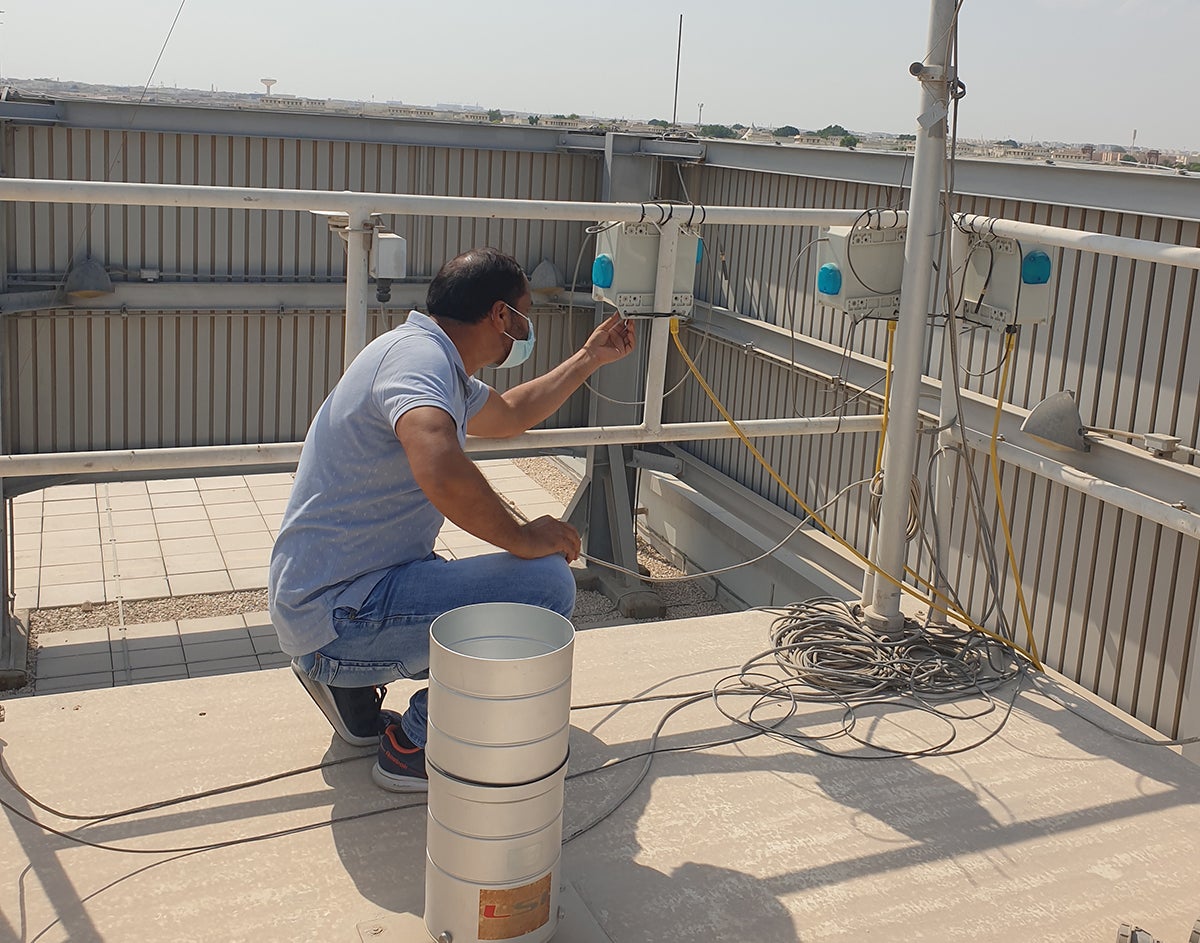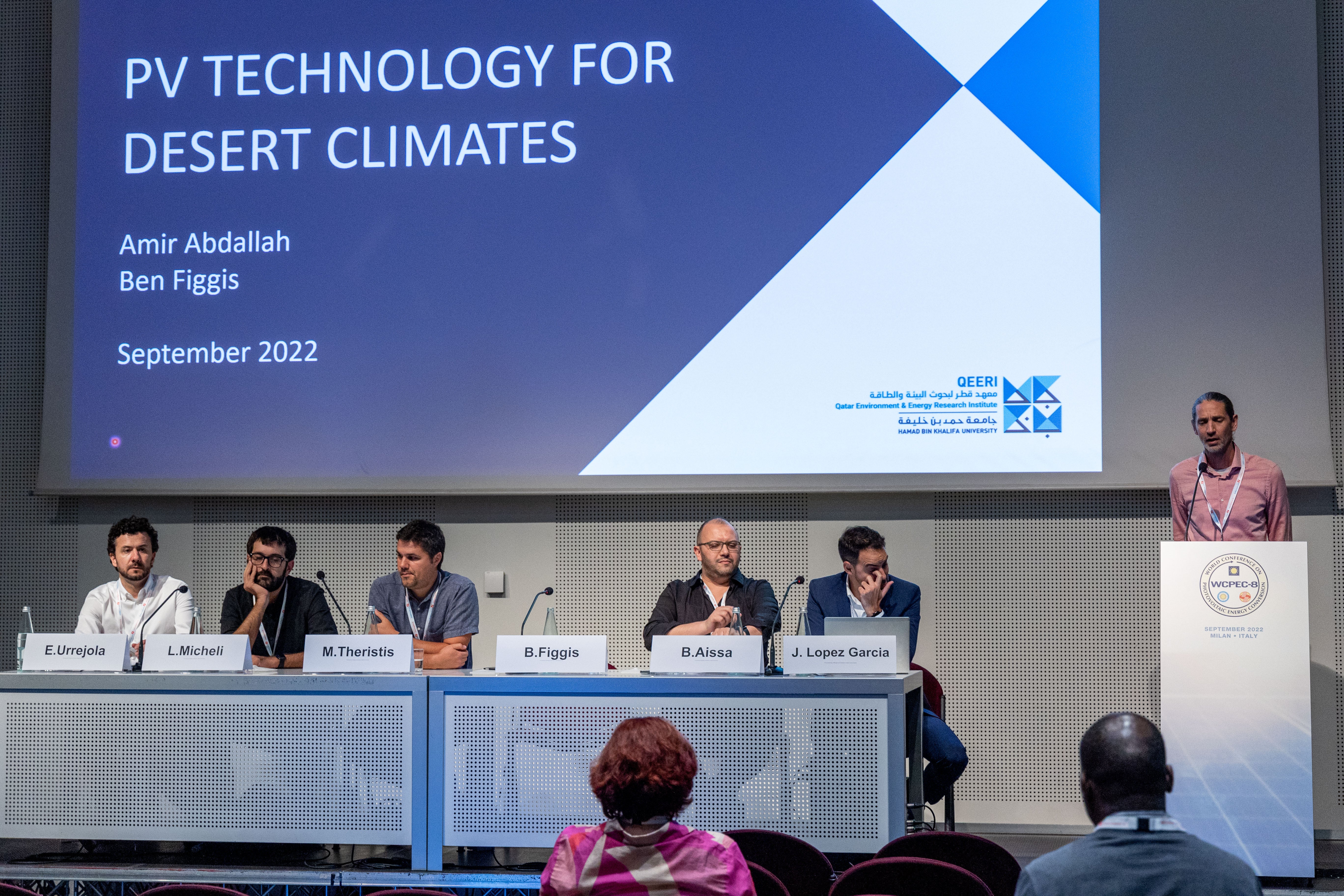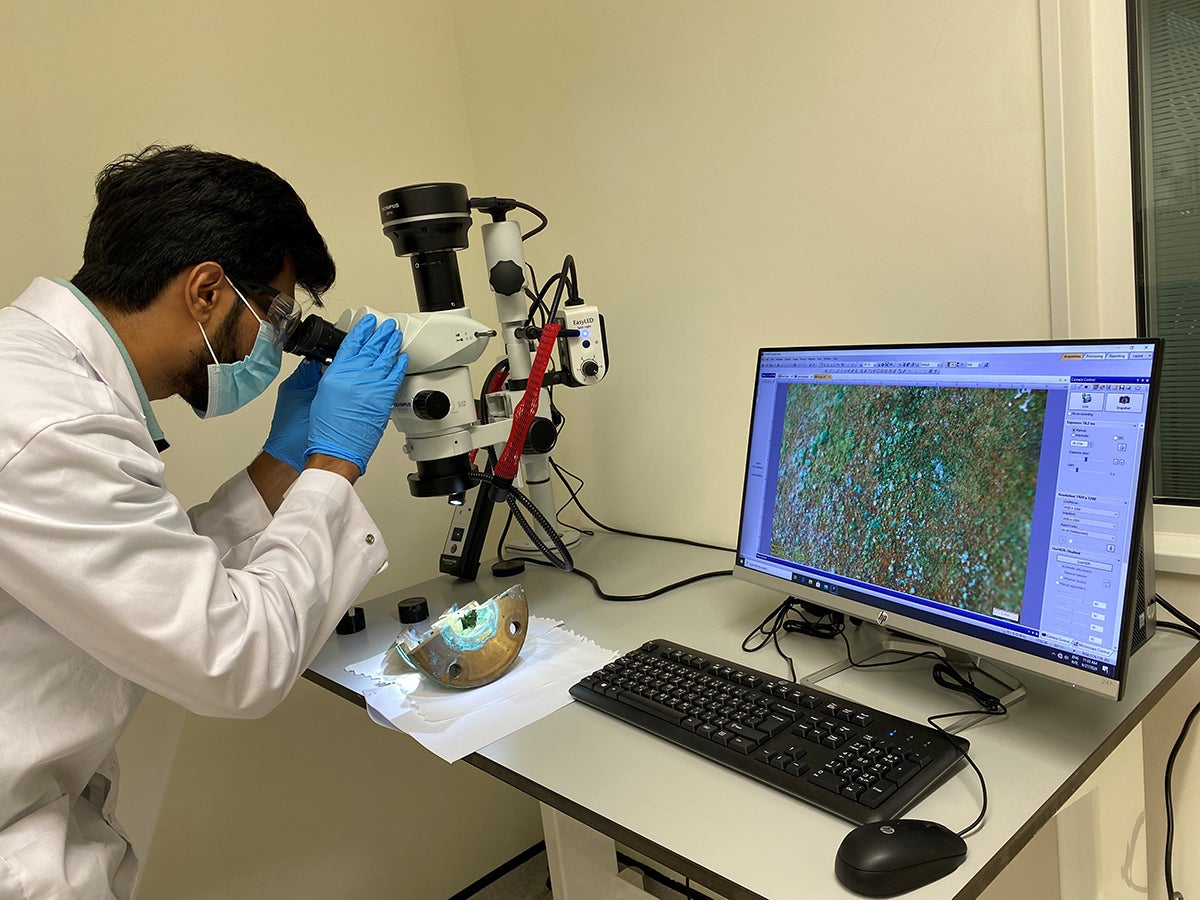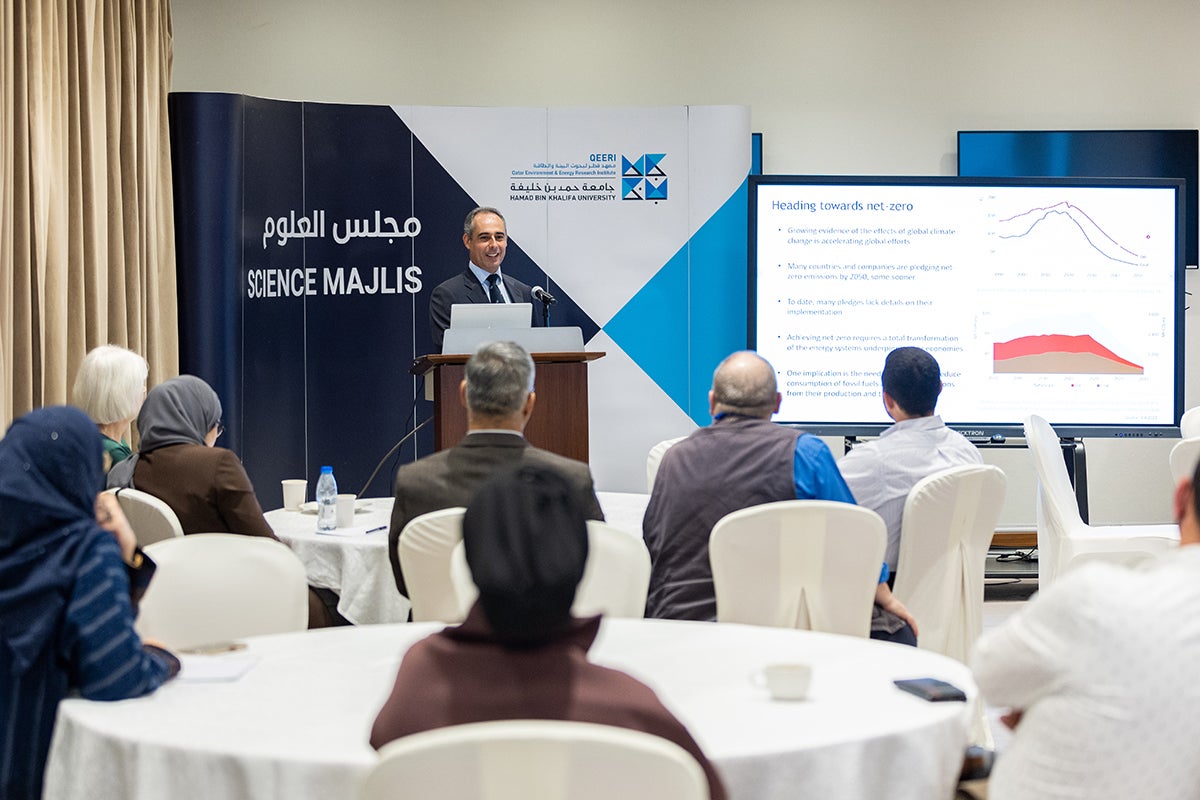
Qatar’s contemporary urban environment tells the story of the country’s remarkable economic growth and development journey over the past decades. Cognizant of the environmental and sustainable development challenges that accompany such rapid growth, Qatar has taken firm steps to balance its economic activities with environmental protection and long-term sustainable development.
Founded as a national research institute 10 years ago, Qatar Environment and Energy Research Institute (QEERI), part of Hamad Bin Khalifa University (HBKU), has supported the country’s leadership along every step of this journey. QEERI’s research efforts further Qatar’s strategies to achieve sustainability through comprehensive urban development planning that will enhance the quality of life for all residents and citizens of Qatar, as well as their health, wellbeing and productivity.
A vital aspect of QEERI’s work is empowering the country’s leadership to understand how factors such as air quality impact the health of its people. Qatar’s challenges in air quality and thermal comfort include dust storms, vehicle emissions, and industrial emissions. The institute’s key initiatives encompass working with national stakeholders to quantify the burden of existing air quality on human health and population productivity, and recommending strategies and policies to reduce its impact.
Enabling decision making
“Qatar has a sound policy and regulatory foundation to manage its urban development challenges; key frameworks are Qatar National Vision 2030 and the UN Sustainable Development Goals.
“At the heart of QEERI’s mandate is building a knowledge base and improving national capacities to enhance environmental sustainability in Qatar. Our high-impact, research-based solutions contribute to national policy directives and empower decision makers. QEERI cooperates with several institutions in Qatar and globally, thereby maximizing the benefits achieved by our research. In addition to supporting industry solutions, such combined work has already contributed toward tackling key health challenges related to energy, water, and environment,” says Dr. Marc Vermeersch, Executive Director at QEERI.
Assessing the quality of urban air
The Environment and Sustainability Center at QEERI has established an air quality research program with a strategy that aims to enable new discoveries, build capacity, and contribute to national policy directives in air quality and particulate air pollution in Qatar.
The research team has worked on the comprehensive assessment of urban air quality in greater Doha. Within the framework of national environmental regulations, QEERI developed an Air Quality Index (AQI) and Inhalable Particulates Index (IPI) for Qatar. These indices empower national decision makers and the general population to make better informed decisions on their personal exposure and the quality of the air we breathe.
QEERI brings forward its technical and scientific expertise and capabilities to assist national stakeholders to achieve their objectives for Qatar. An example is QEERI’s work with the Ministry of Public Health (MoPH) in assessing the human health impacts of air quality in the country. The air and environment teams are able to assist the Ministry with validation of their ambient monitoring data and jointly monitoring air quality in Al Wakrah Hospital. The MoPH may also provide relevant warnings to the public.
Stepping up efforts
Much effort is going into monitoring air quality for the millions of football spectators and visitors expected to attend the FIFA World Cup Qatar 2022TM. QEERI is working with the Supreme Committee for Legacy and Delivery to exchange knowledge about how to better monitor air quality before and during the event.
As part of this initiative, QEERI has commissioned its fifth permanent Air Quality Monitoring Station (AQMS) at Al Thumama Stadium. The stations measure the concentration of pollutants in the air including gases (ozone, nitrogen oxides, methane, etc.), particulate matter, and meteorological parameters (temperature, wind speed, wind velocity, direction etc.).
With regard to indoor air quality, an agreement with MoPH is enabling QEERI to conduct bioaerosol exposure studies in public areas. Exposure to bioaerosols, airborne particles such as fungi, pollen, bacteria, and viruses, commonly released from soil, water, and sewage, are associated with a wide range of health effects, including infectious diseases, acute toxic effects, allergies, and cancer. QEERI’s research and its findings will provide the actionable air quality data needed by the Ministry to advance the development of indoor air quality guidelines.
“The measurable results of our research and collaboration with stakeholders will ultimately be improved air quality management in the country for future generations. Ensuring the wellbeing of populations alongside the country’s growth has driven QEERI to achieve key milestones over the past 10 years. This aim motivates us to continue delivering research that strengthens evidence-based policy interventions to promote the health and well-being of the country’s residents while also benefiting knowledge sharing in the region and globally. We believe there is immense value in building and developing the next generation of scientists, researchers, and engineers, and through our internship and other student outreach programs, we stay committed to capacity building for Qatar, the region, and at a global level,” adds Mohammed Ayoub, senior research director of the Environment and Sustainability Center at QEERI.
To find out more about the work at Qatar Environment and Energy Research Institute (QEERI), please visit qeeri.hbku.edu.qa.
Related News

QEERI Presents Solar Energy Innovation at International Photovoltaic Conference

Tackling Corrosion Challenges: A Decade of Qatar Environment and Energy Research Institute








